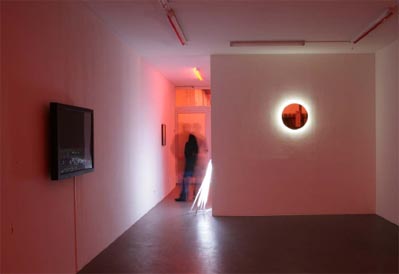opening: Friday, January 15th, 2010, 7pm
exhibition: JANUARY 16Th – APRIL 4th, 2010
artist talk with Christina IRRGang & Gregor JanseN:
Saturday, February 27th, 2PM
Reading: Saturday, March 27th, 2PM
In the exhibition »you inspire poetry in me«, Andreas Lorenschat
presents works of art that focus on the mutual penetration of language
and mental images as well as on the superimposition and disintegration
of imagined inner and factual outer pictorial situations. In the
process, the artist arrives at a juxtaposition of different forms of
the poetical, illuminating its borderlines and tightrope with an almost
analytical and subtly ironical vision. In an index-like manner, the
biographical intermingles with literary or cinematic paradigms. Text,
object, and image correlate with each other on a par. By means of
sometimes preexisting materials, which also include linguistic
elements, Lorenschat generates real and fictitious image spaces that
combine within one medial spectrum video, photography, lyrics, text
work and objects. The conception of the exhibition thus contains a
dialogical element: As a reader of images and texts the viewer becomes
part of this juxtaposition. Imagined blank spots generated by the
artist in his works which focus on a spur-of-the-moment perception are
thus being connected and complemented by the viewer, turning the
reciprocity of private and public visual relationships into a motif
which, as the testimony of a poetical situation, is positioned between
reality or fiction.
Somewhat similar appears the immersion in narratives and the process of writing in the work »Die Briefe (In 80 Briefen durch 80 Welten) [The Letters (In 80 Letters through 80 Worlds]«: During the entire duration of the exhibition, the artist will write one letter each day and send it to the gallery. The letters will be opened by the gallery owner and mounted on a special retention bracket in the sequence of their arrival. Upon request, viewers may sit down at a table and chair positioned opposite the letters and read them. Written without a particular addressee in mind, these letters exist as the testimony of an internal monologue, circulating as a fictitious dialogue between the author and the reader, the sender and the anonymous receiver during the event of the exhibition. While with this text work in the format of 80 letters the artist presents quasi 80 prosaic as well as personally tinted narratives, the reader embarks into imaginary worlds sketched by Lorenschat, which divest themselves in the gallery space in the form of ›loud‹ reflection. The process of writing as a manifestation of thought – and thus: the written documentation of fluctuating mental images – here forms quasi content and corpus of the text object gradually generated by the artist and unfolding only in the reception of the reader or the listener. During a reading on the 27th of March, the artist will read a selection of these letters.
A concrete examination of the Self or of an opposite is conveyed by the installation object »Der Plato«: model for the object, which is made of grey reflective glass, is the round mirror prototype ›Plato‹ which is available in building supply stores. Lorenschat has fitted the custom-made mirror with a circular light source that surrounds the mirror’s surface with a kind of aureole when lit, spreading the dispersed light along the exhibition wall. Through the darkening of the mirror and its synchronized back lighting the artist creates a back light situation that dims the perception of one’s own mirror image within the contrast of brightness and darkness.
A light that changes in irregular time intervals radiates from the light installation »The Lights« which consists of ten fluorescent tubes positioned vertically against a wall, leaning loosely against or into each other. The surface of some of the tubes has been masked with sequences of words. Depending on the positioning of the tubes some are obscured, eluding the complete applied writings – passages from the prologue of Dylan Thomas’s 1954 radio play »Under Milk Wood« – from the viewer’s eye. While the Welsh poet in his play describes the vested longings, dreams, and inner thoughts of various protagonists of a fishing village, it is the only partially legible letters in Lorenschat’s installation that make visible the jagged image of a thought – quasi as a snapshot of an interrupted memory. Both the positioning of the light tubes in the space and the writing applied to them relate to the artist’s own memory, tracing the image of a weathered wooden fence in a Swiss mountain village.
The video installation »Das Meer« [The Sea] shows the glittering shimmer of a moving ocean surface at night while the light source that generates the scintillating shimmer cannot be detected. As in a mirage that fuses reality and fiction, the day and night views of the water meld in a surreal image space in which the image object changes between familiarity and alienation.
Similarly subtly abstract appears the 2-channel video installation »The Dawn«, which shows the film sequence of a seashore at dawn and an actor reciting a monologue, presenting both moving images opposite each other in the space. While the sequence of the sunrise is repeated unchanged in intervals of one minute, the spoken text that lasts 30 seconds repeats continuously within a time span of 15 minutes. The speaker’s pitch, gesture, and mimic change, intensifying with increasing length of time, while the episode of the sunrise remains unchanged. The speech of the male protagonist is taken from a dialogue of Adrienne Shelly’s film »Waitress« (2007), in which a bachelor reveals his feelings to a young waitress named Dawn – almost grotesquely – in spontaneously articulated rhyme. Lorenschat composed this dialogue as a monologue, and in the juxtaposition with the images created a subtle dialogue situation between the actor and a natural phenomenon.
The line »you inspire poetry in me« articulated in the film »Waitress« as well as in the video installation »The Dawn« determined the title of this exhibition conceptualized by Andreas Lorenschat. Written in his own handwriting, the artist mounted the line »you inspire poetry in me« in enlarged black letters of adhesive foil on one of the gallery’s walls. From the negative material of the adhesives he formed a jagged amorphous structure that he positioned as a photographic image opposite the lettering, and that continues to exist as an abstract reflection to the writing.
(Christina Irrgang / translated by Uta Hoffmann)





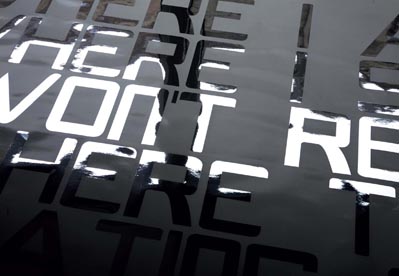

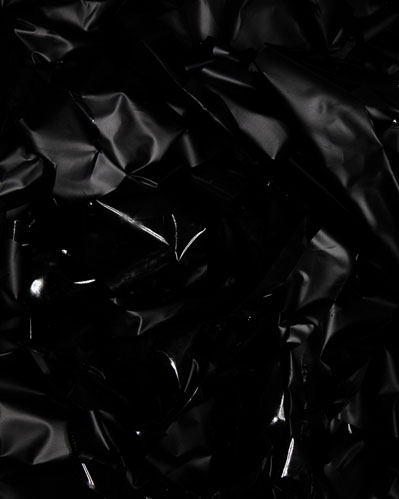
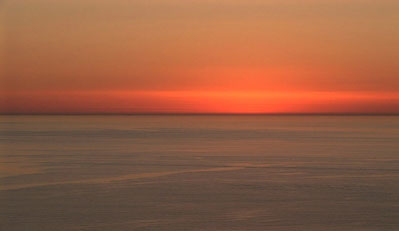
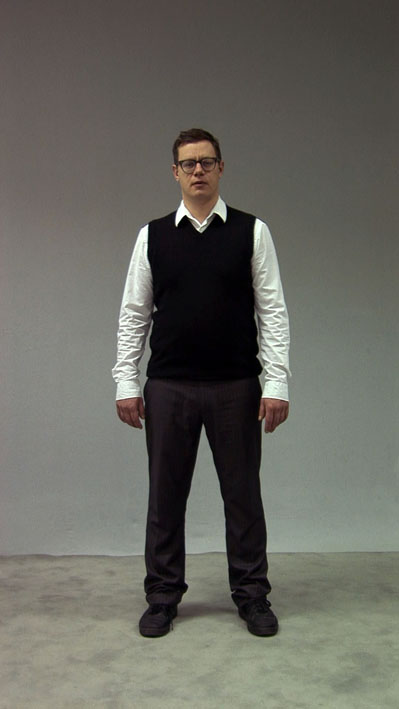
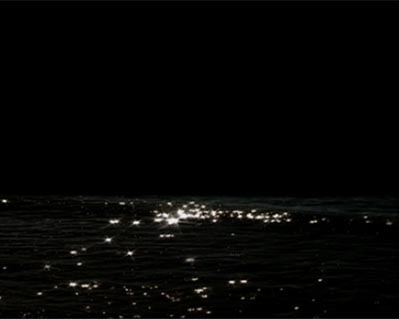
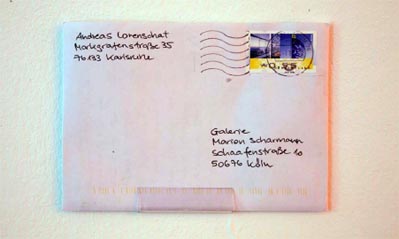
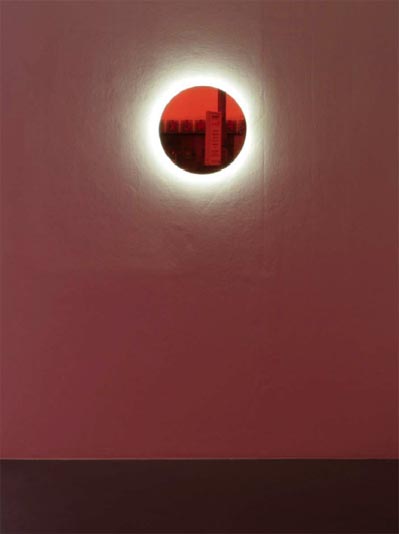 Andreas Lorenschat, »The Plato«, 2010, mirror, fluorescent lamp, edition of 3 + 1
Andreas Lorenschat, »The Plato«, 2010, mirror, fluorescent lamp, edition of 3 + 1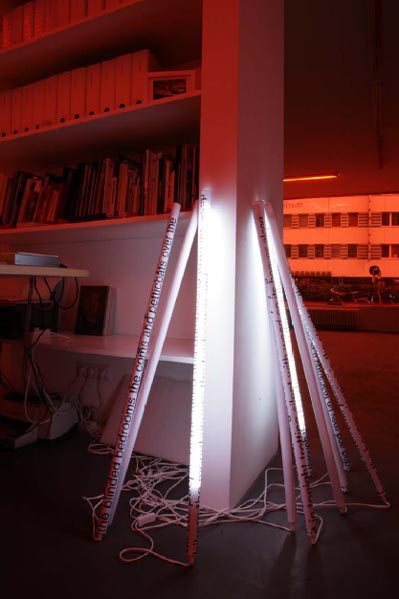 Andreas Lorenschat, »The Lights«, 2010, 10 neon lights, adhesive foil, edition of 5 + 2
Andreas Lorenschat, »The Lights«, 2010, 10 neon lights, adhesive foil, edition of 5 + 2